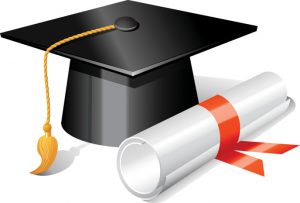The Nongame Conservation Section of the Georgia Department of Natural Resources is offering a $1,000 grant to a third-, fourth- or fifth-grade public or private school teacher in Georgia who demonstrates exceptional energy and innovation in teaching life sciences.
The grant is possible thanks to support from The Environmental Resource Network, or TERN, friends group of DNR Nongame Conservation.
Through education, research and management, DNR Nongame Conservation works to safeguard Georgia’s native diversity of wild animals, plants and their habitats – while also striving to increase public enjoyment of the outdoors. The purpose of the grant is to recognize and help an outstanding teacher who uses Georgia’s nongame wildlife as the context for learning third-, fourth- or fifth-grade curriculum standards, according to Linda May, DNR environmental outreach coordinator.
“Hands-on learning outdoors has many benefits for students,” May said. “Through their natural curiosity, children often develop a love for wildlife and the places they call home. Ultimately, this awareness and appreciation help them to become good environmental stewards – and then our natural resources benefit, too.”
Nongame wildlife refers to native animals that are not fished for or hunted and rare native plants, species such as gopher tortoises and purple pitcherplants.
Previous grant recipients learned about our state’s natural heritage by exploring various ecoregions. For example, at Whit Davis Elementary in Athens, science specialist Steven King guided students in creating Georgia-specific habitats with representative animals in aquariums for the school’s science laboratory. Professionals from the University of Georgia’s Warnell School of Forestry and Natural Resources helped King. Students observed the aquarium activity and recorded findings in a journal and through videos broadcast on the school’s district cable TV channel.
More recently, Savannah Country Day School students taught by science specialist Bill Eswine turned a large drainage ditch on campus into a bog for use as an outdoor classroom. This new habitat will be used for wildlife observation and data recording as well as learning about the potential effects of pollution and other threats to ecosystems.
This fall, another teacher will be selected to receive funding based on project design, which will be evaluated through grant proposal questions. Projects that are especially creative and teach about Georgia’s rare or endangered species, as well as those that have no other means of funding, will earn bonus points. See www.georgiawildlife.com/education/educator-resources for details.
The deadline to apply is Sept. 18. DNR will notify the grant winner and award funding in October.
For more information about the grant, please contact Linda May ([email protected], 706-557-3226) or Anna Yellin ([email protected], 706-557-3283).












Leave a Comment
You must be logged in to post a comment.